How to get rid of raccoons in your yard: 5 ways to try
Learn how to get rid of raccoons to keep your plot tidy and protect your homegrown crops

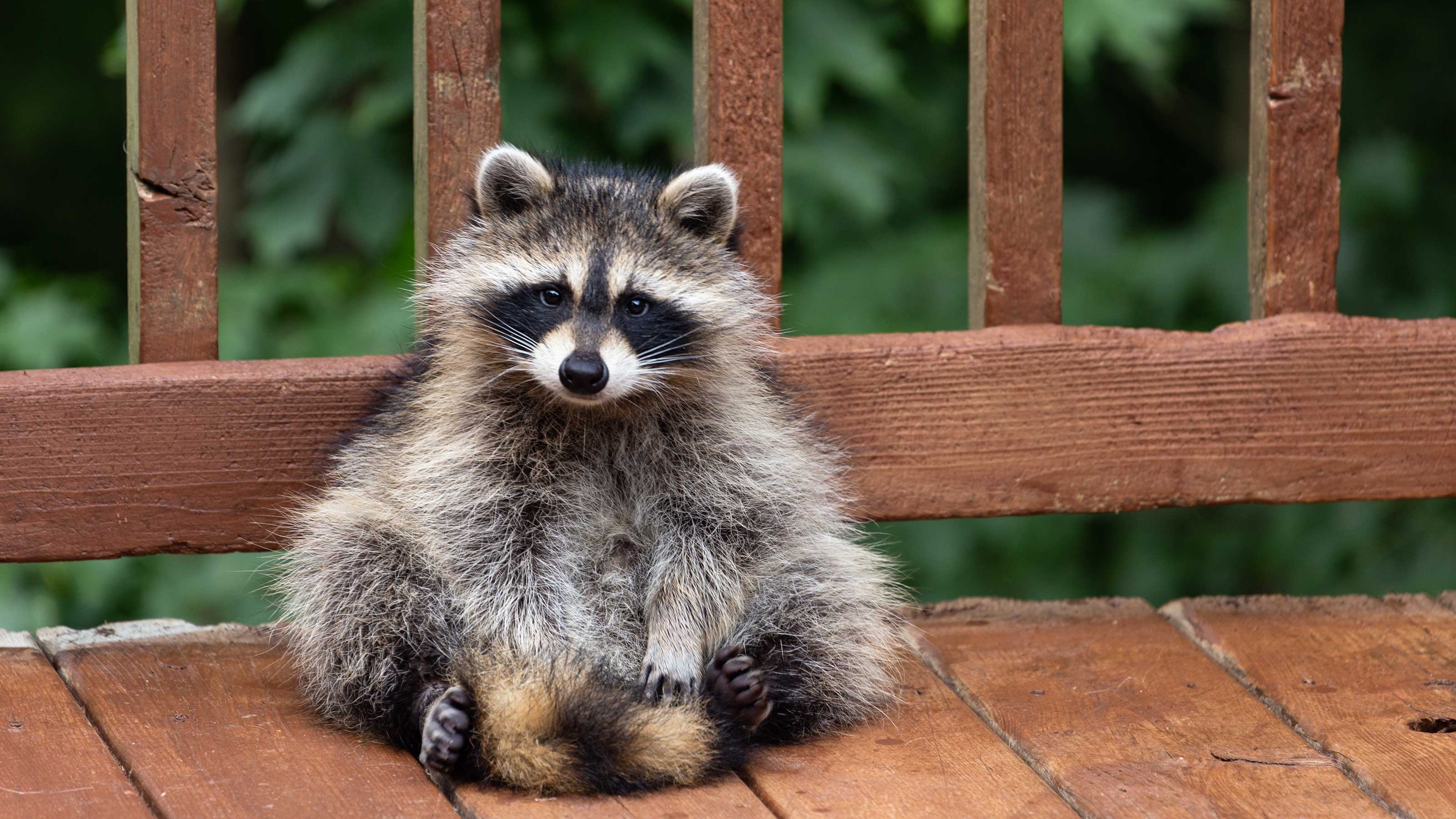
Wondering how to get rid of raccoons? With the help from plenty of pest experts, we've rounded up some easy tips to try.
These animals are similar to foxes in terms of the damage they can cause in a garden. 'Raccoons are beautiful, adorable creatures, but they're also smart and territorial, and they love to dig,' says Stacie of Patio Productions, who works as a head groundkeeper in Houston, Texas. 'If you have a garden, chances are you've seen raccoons digging in it, and that can be a problem.'
These pests are also known to pilfer fruit and vegetables and rummage through trashcans, leaving a mess in their wake. So, as cute as they may be, if you'd rather not have them on your plot there are a number of ways to deter them.
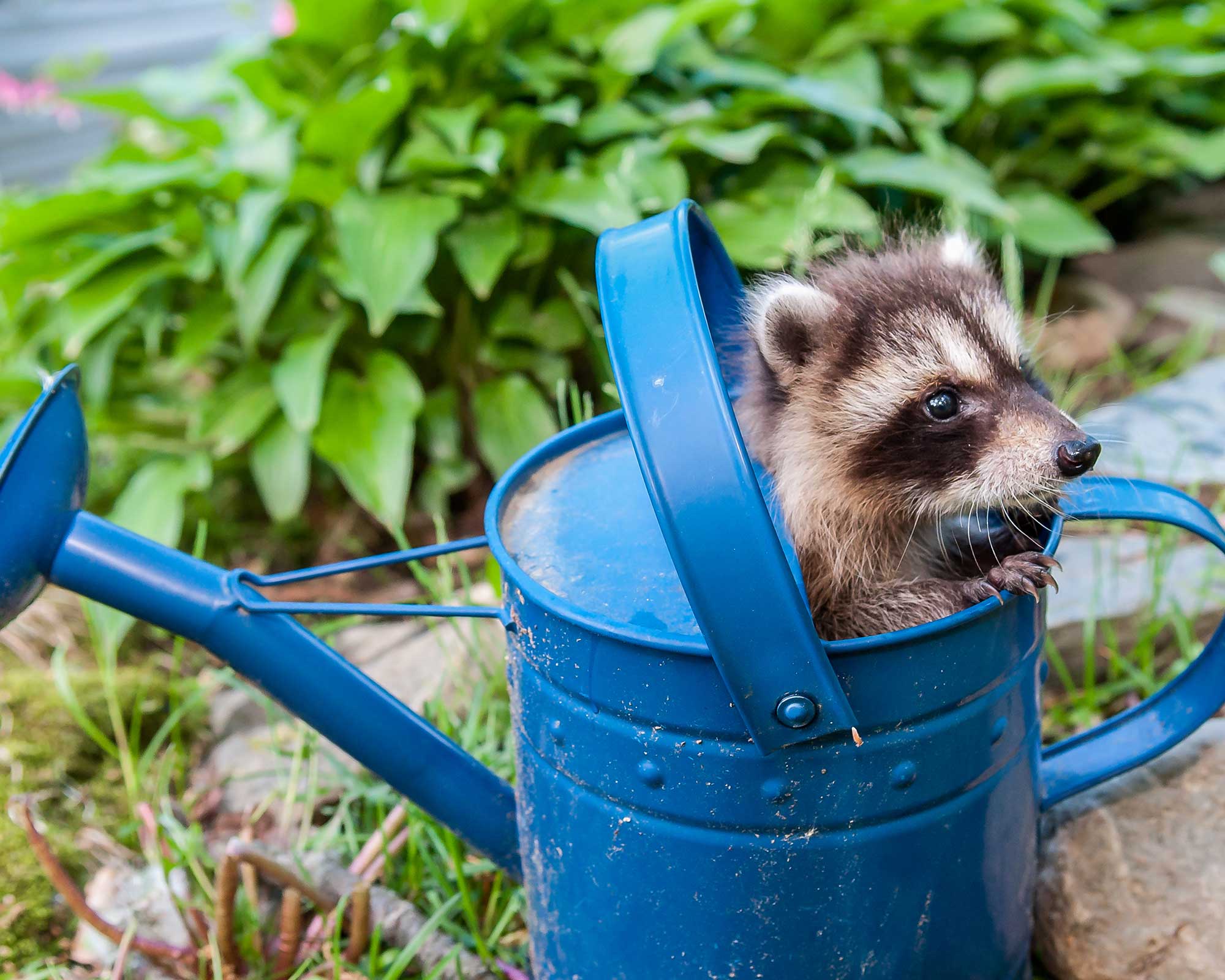
Raccoons are a common backyard pest
How to get rid of raccoons – 5 simple methods to deter them
These methods on how to get rid of raccoons are straightforward, safe, and won't cause harm, while protecting your plot from any potential damage.
1. Make your plot less enticing to raccoons
'All animals need three basic things: food, water and harborage,' says Jeremiah Woodward, a wildlife expert from Fox Pest Control. 'Odds are, if they are coming onto the property, these are the things they're looking for. So, the first thing is to try to eliminate access to these three things.'
If you have a kitchen garden, Meg Pearson of Critter Control recommends harvesting regularly. She also says to avoid leaving any fruits or vegetables on the ground which can tempt these furry critters.
Raccoons are also attracted to bird feeders. 'Limit the amount of seed on the ground surrounding a feeder,' Meg says. She also suggests investing in feeders that are difficult for a raccoon to climb or access.
Reducing the amount of standing water on your property can also encourage these pests to go elsewhere, she adds, as can removing any brush piles or logs – the perfect place for a raccoon to shelter and hunt for grubs.
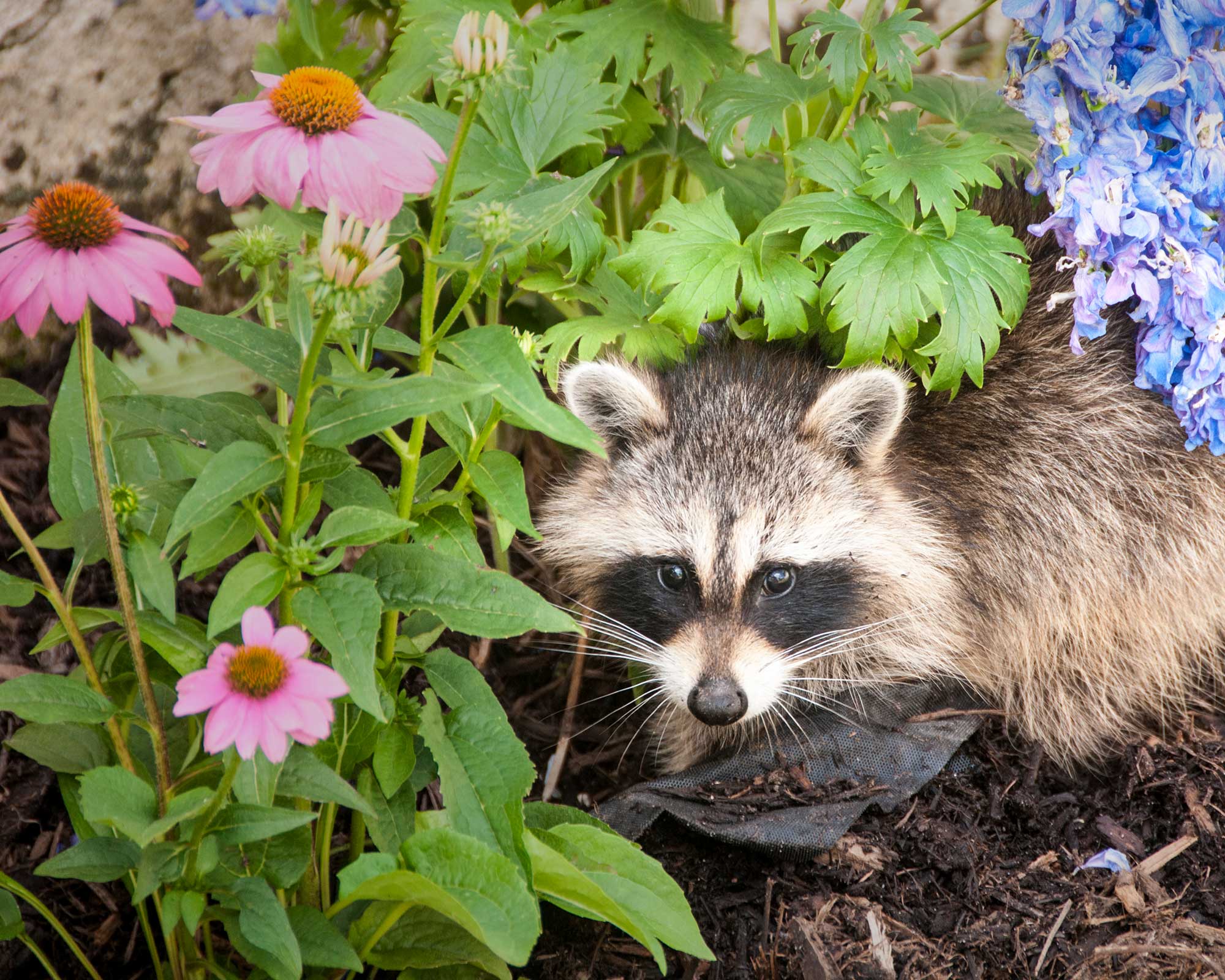
Raccoons will gravitate towards plots with water, food sources, and shelter
2. Install a barrier around your plot
'If you have a fence around your yard, make sure there isn't enough space between the bottom of the fence posts and the ground for them to fit through,' says Groundkeeper Stacie. Chicken wire attached to the bottom of the fence can provide extra protection – bury part of it so that it blocks digging access from underground, bending the bottom out in an L-shape. This is also a good way to keep rabbits out of your backyard.
Meg Pearson says, 'Additionally, installing a barrier around your deck or shed will prevent a raccoon from denning under the structure.'
You can also install a barrier around your precious homegrown fruit and veggies. Zack DeAngelis, Founder of Pest Pointers, suggests building an enclosure around raised beds using deer netting. 'If they're still finding their way through the netting, you can simply upgrade to a more permanent solution using galvanized steel,' he adds.
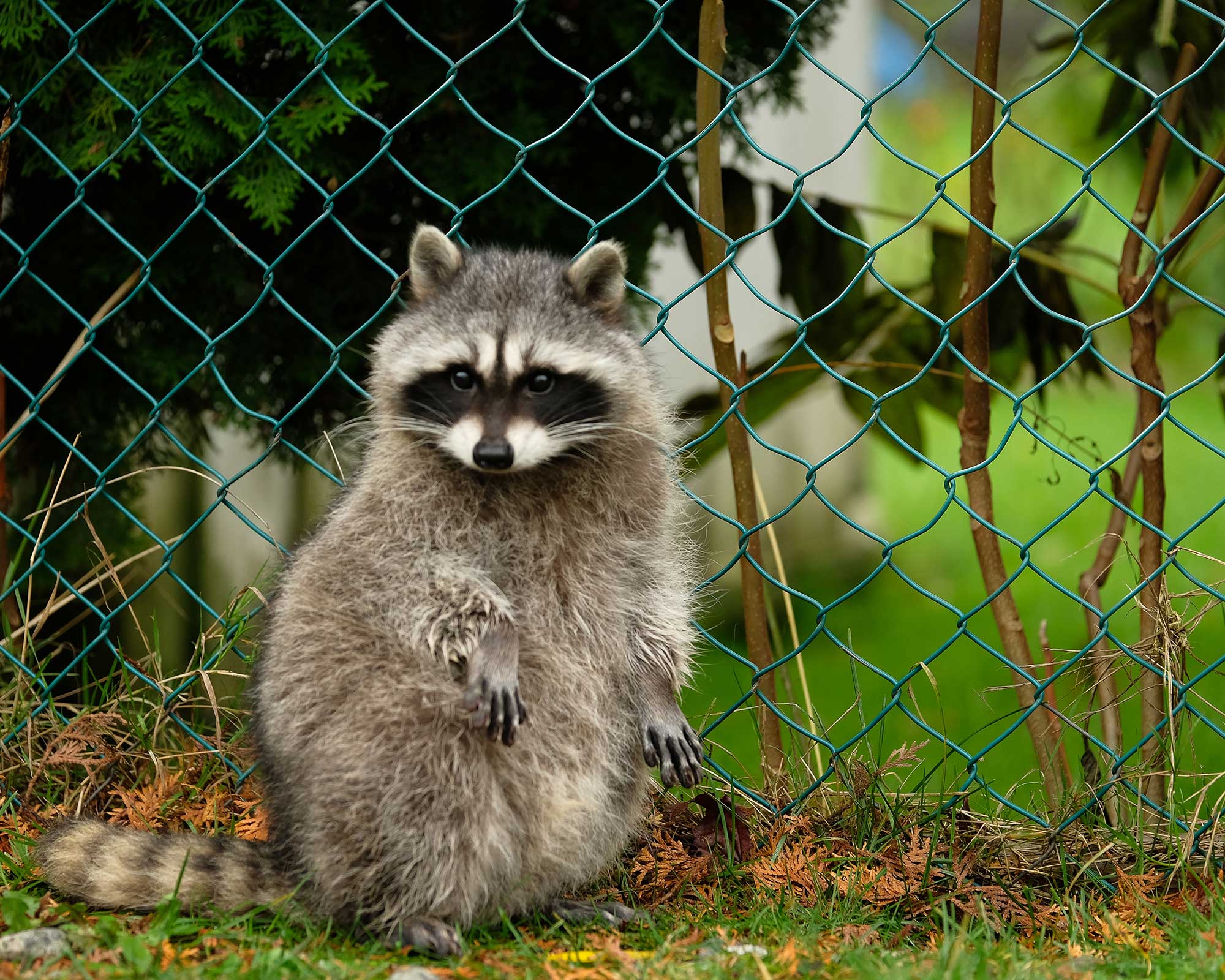
A fence can help keep these pests at bay
3. Seal trash cans properly
'Raccoons are very opportunistic eaters, meaning they eat what they come across and go after what's available to them,' says Zack DeAngelis. 'It's often why you see them scavenging in things like trash cans.'
He suggests using bins that can be sealed tightly with a lid – a method that will also help get rid of skunks in your yard. This will stop the smell from attracting these pests and also prevent them from accessing the trash and making a mess. We like the look of this one from Amazon.
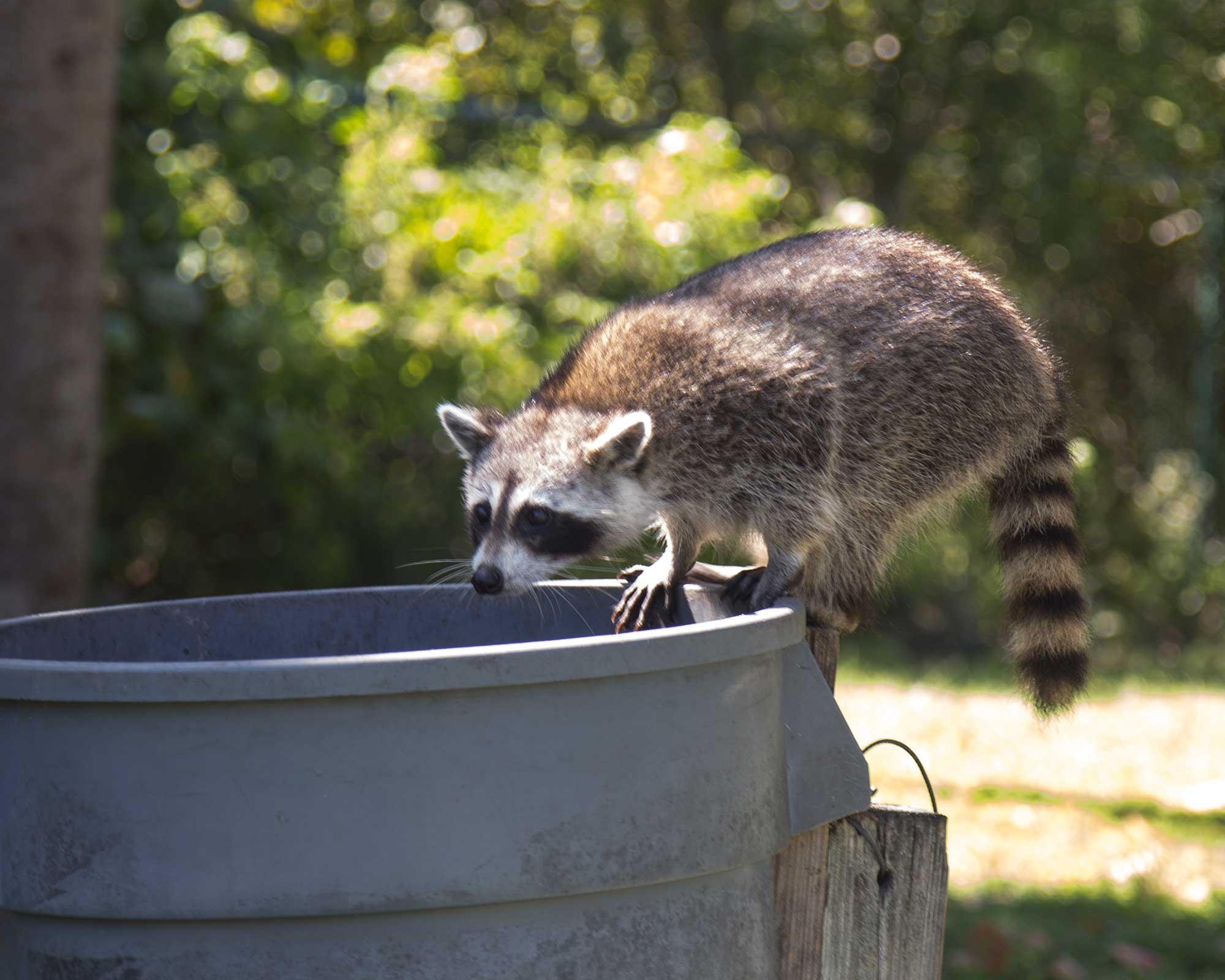
Switch out your trash cans for ones with secure lids
4. Scare raccoons away with sprinklers and ultrasonic sound
A.H David from the blog Pestcontrolweekly.com recommends installing motion lights and water sprinklers, saying that they are 'the most effective ways to get rid of raccoons.'
Zack also recommends the sprinkler method: 'When raccoons (or other pests) get near the motion-activated water sprinkler [Amazon has a wide range], it will spray them with a hard stream of water causing them to scamper away. The best part about this method is that it doesn't harm the animal and it waters your lawn or garden. A win-win!'
As another scare tactic, A.H David suggests using ultrasonic sound devices. These are a type of deterrent that can be pushed straight into the lawn and are said to work on all sorts of pests, including moles.
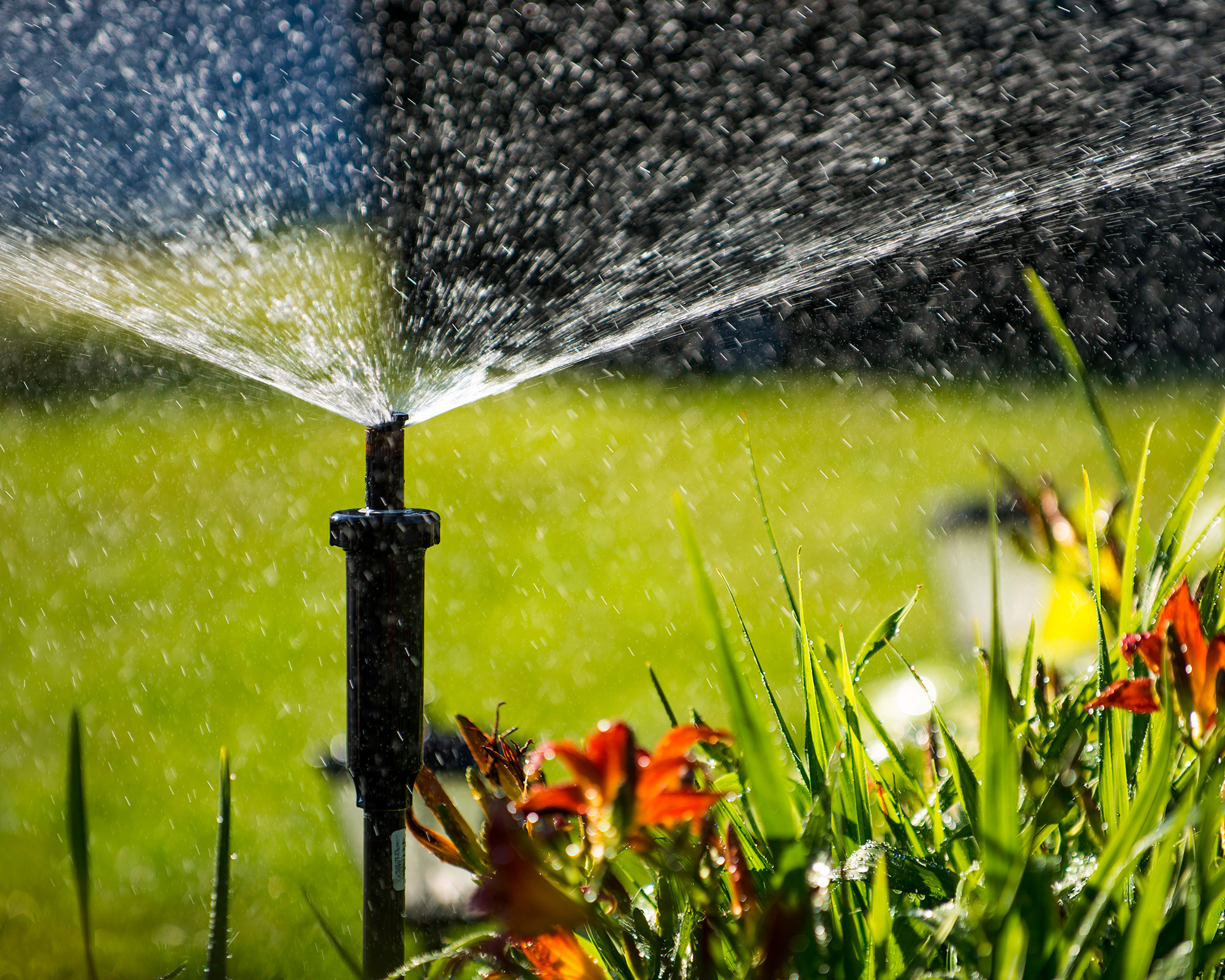
Motion-activated sprinklers will scare raccoons and other pests away
5. Use home remedies to deter raccoons
You can also use some materials that may already be in your cupboards to keep raccoons away, due to their distinct smell. A.H David says ammonia, vinegar, blood meal, and red chili and garlic powder can all be effective – try sprinkling them at the points where you suspect the raccoons are entering your yard. Chili powder can be used to get rid of squirrels, too.
The smell of mint also deters raccoons and many other pests: ready-made repellent sprays found online (try Amazon) often include it as an ingredient.
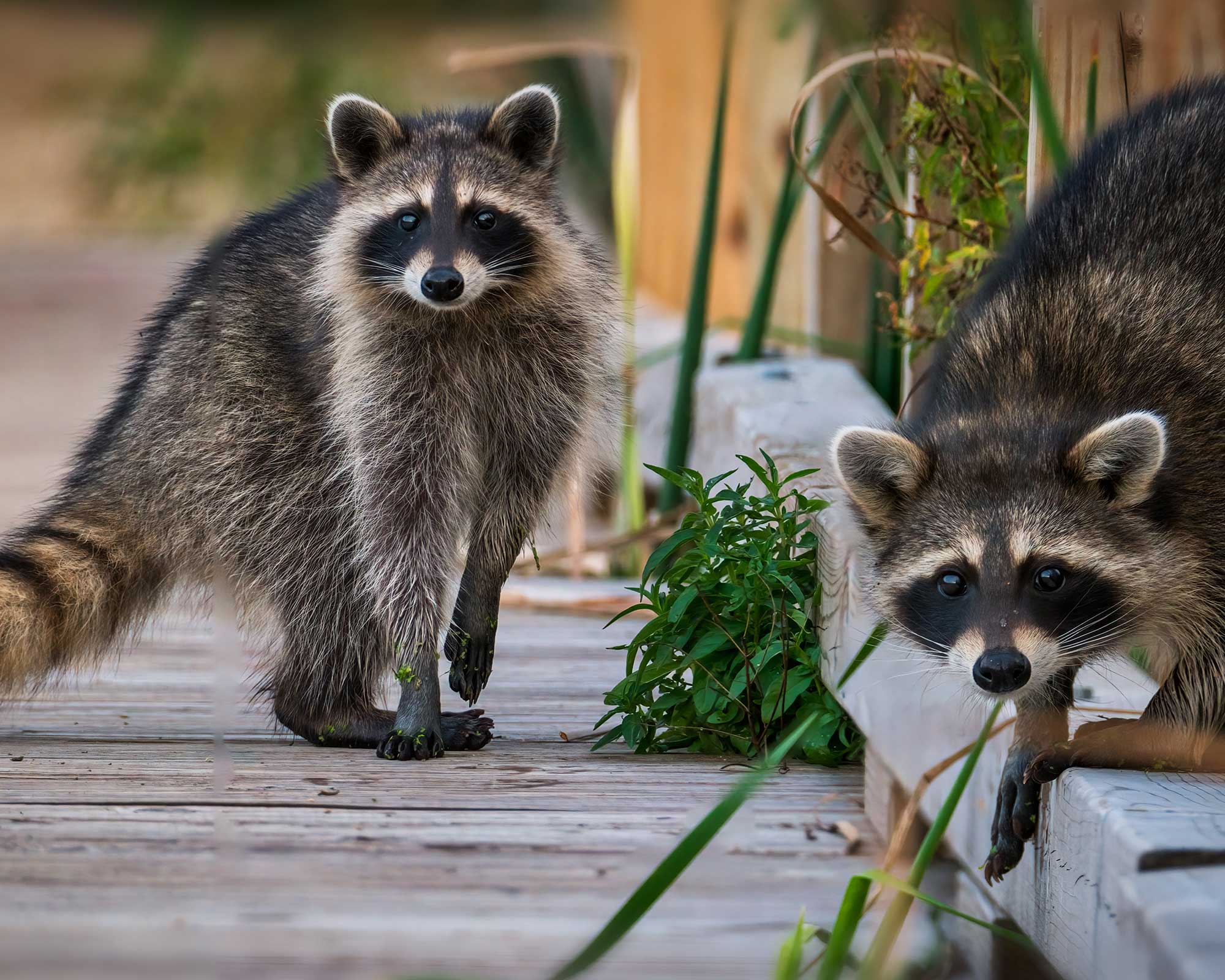
Put repellents near entry points to ward off raccoons
Can you trap a raccoon in a cage?
Some homeowners may wonder about catching raccoons in cage traps and relocating them themselves, similar to getting rid of rats.
However, these animals are much larger than rats, and this method is problematic for several reasons.
'You have to make sure to follow all of the laws in your area regarding wildlife,' says Jeremiah Woodward of Fox Pest Control. 'You must also make sure to take all safety precautions since raccoons are rabies vector animals.
'This is something I would not recommend a homeowner do,' he says. Instead, he advises homeowners to contact their local wildlife control to handle the problem safely and professionally.

The garden was always a big part of Holly's life growing up, as was the surrounding New Forest where she lived. Her appreciation for the great outdoors has only grown since then. She's been an allotment keeper, a professional gardener, and a botanical illustrator – plants are her passion.
